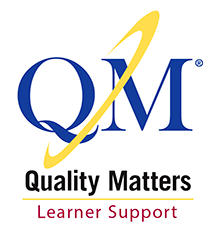Nationally recognized for student experience
The Wall Street Journal

Masters
Hybrid
Logistics Systems Engineering
The BGSU Master of Science in logistics systems engineering (MS-LSE) is an interdisciplinary program that blends business and engineering skills to solve complex problems in logistics, systems engineering, production design and healthcare systems. It prepares students for a variety of positions by giving them the ability to design a system, component or process to meet desired needs within realistic constraints.
U.S. and International students can choose to enroll to study on the main BGSU campus or in the online program. Students seeking admission in this program must have a bachelor’s degree in any engineering, technology, applied sciences, business or related academic disciplines.
Ranked among the top 10 programs in the nation by SupplyChainGuide.org, the MS-LSE program prepares students to combat issues that arise in logistics and systems engineering settings, and to understand the impact of engineering solutions in global, economic, environmental and societal contexts.
MS-LSE graduates will be competent to occupy roles that require candidates to have a blend of hard analytical and design-thinking skills along with soft skills to communicate, convince and collaborate in a complex human environment.
Quality Classroom Experiences
Our faculty is made up of recognized leaders in their respective fields, providing highly personalized attention within a learner-centered environment. This strong mentoring community strikes the right balance between the most current, relevant theory and hands-on, practical knowledge to develop soft skills and knowledge.
We seek to prepare our graduates to succeed in a rapidly evolving, global environment. The graduates from this program will be well-versed in designing, managing and making business decisions related to complex systems in the real world.
This program offers a study abroad program to the Panama Canal to explore international aspects of logistics and systems design from the curriculum.
Have questions?
Our online enrollment specialists are here for you from registration to graduation. Contact us with questions about applying, financial aid, program details, student support and more. online@bgsu.edu | 419-372-3226
This program is a collaboration between BGSU’s College of Engineering and Innovation and the Schmidthorst College of Business. It is one of the very few programs in the nation that blends engineering skills with business skills.
#1 public university in Ohio for career prep
The Wall Street Journal
Internships and Career
This program offers an optional internship or study abroad experience to Panama to see in action the international effects of logistics and systems design from the curriculum.
The purpose of your internship experience is to gain working knowledge about the daily roles and responsibilities of professionals in a logistics and systems engineering occupation in whatever area you are interested in exploring.
You will develop the management and leadership skills to promote a productive working environment in logistics and systems engineering occupations. This will also promote the student’s personal and career development through interaction with the supervisor and members of the organization or company.
MS-LSE graduates will be competent to occupy positions such as engineering manager, logistics manager, supply chain analyst, healthcare analyst, industrial engineer, plant manager, systems integrator, process improvement manager and engineering operations manager.
- Amazon
- APL Logistics
- Boeing
- Chrysler
- Dana
- FedEx
- Ford
- General Electric
- General Motors
- Honda
- Lockheed Martin
- Mercy Health
- Ohio Department of Transportation
- Ohio Logistics
- Owens-Illinois
- ProMedica
- Stryker Logistics
- UPS
Career paths
- Engineering operations manager
- Systems engineer
- Logistics manager
- Industrial engineer
- Supply chain analyst
Quick Facts from the Bureau of Labor Statistics
Curriculum
The Master of Science in logistics systems engineering program is composed of 30 credit hours post bachelor’s and is designed to teach students to solve problems that arise in logistics and systems engineering settings. You will learn to understand the impact of engineering solutions in global, economic, environmental and societal contexts.
Major coursework includes analyzing logistics transportation and distribution systems; integrated logistics planning and design; supply chain management; healthcare systems engineering; demand-driven supply chain planning and operations; quality management in healthcare delivery; data mining; project management; and your graduate internship or study abroad experience. The program culminates in a six-credit-hours thesis or a three-hours capstone project.
Some MTM program courses are offered online only, while other courses are offered in both online and face to face formats. Students can complete this program online if they select courses carefully. International students would be able to select courses that meet USCIS requirements.

Sample courses
- Logistics Systems Design and Analysis
- Logistics Transportation Systems
- Logistics Distribution Systems
- Integrated Logistics Planning and Analysis
- Supply Chain Management
The Master of Science in logistics and systems engineering (MS-LSE) is an interdisciplinary program, which focuses on logistic, lean, quality, production and healthcare systems. Students may enter the program at the beginning of any semester and must have a bachelor's degree in any engineering, technology, applied sciences, business or related academic disciplines. For regular admission in the program, applicants must meet the following requirements:
Applicants must submit their resumes listing educational background and job experience, among others.
A minimum undergraduate GPA of 3.0 (on a 4.0 scale) is required for regular admission to the program. All Graduate College admissions policies pertaining to GPA requirements will be followed for this program.
Applicants must submit official scores from the Graduate Record Examination (GRE). The Graduate Management Admissions Test (GMAT) may be submitted in place of the GRE. GRE may be waived in case-by-case instances when an applicant has a graduate degree from a U.S. institution or at least five years of relevant and progressive experience. Applicants must submit their graduate transcripts showing degree completion or a one-page summary of their job experience stating job responsibilities, duration, accomplishments, and supervisor contact information.
Scanned copies of transcripts from previously attended institutions are required to complete an application. Final official or notarized copies of transcripts and diplomas will be required upon admission.
International applicants are also required to submit scores from the International English Language Testing System (IELTS), the Pearson Test of English Academic (PTEA) or the Test of English as a Foreign Language (TOEFL).
 BGSU is one of only a handful of universities in the nation — and the only one in Ohio — to earn the Quality Matters Online Learner Support certificate for all of our online programs. This recognition reflects our commitment to providing the critical support and academic services that online students need to succeed.
BGSU is one of only a handful of universities in the nation — and the only one in Ohio — to earn the Quality Matters Online Learner Support certificate for all of our online programs. This recognition reflects our commitment to providing the critical support and academic services that online students need to succeed.
#1 university in Ohio – big or small, public or private – students would choose again
The Wall Street Journal
The Master of Logisitics Systems Engineering program is part of the BGSU Graduate College, BGSU Schmidthorst College of Business and College of Engineering and Innovation.
Accreditation
Bowling Green State University [BGSU] is accredited by the Higher Learning Commission. BGSU has been accredited by the Higher Learning Commission since 01/01/1916. The most recent reaffirmation of accreditation was received in 2022-2023, with our next reaffirmation of accreditation scheduled for 2032-2033. Questions should be directed to the Office of Institutional Effectiveness.
Request Information
Updated: 02/06/2026 04:35PM

